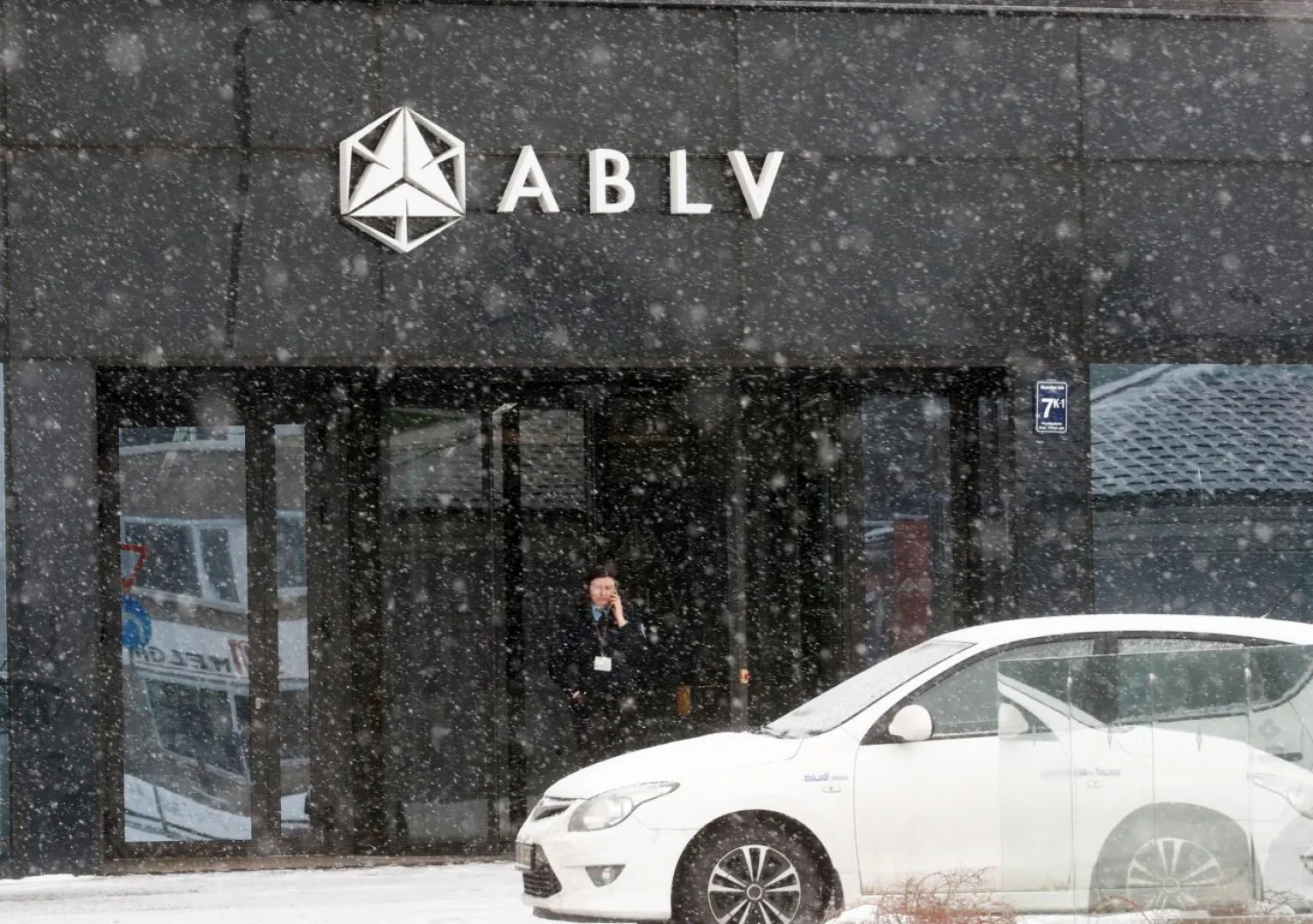Latvia’s ABLV Bank is failing or likely to fail and will be wound up as saving it is not in the public interest, the European Union’s Single Resolution Board and the European Central Bank (ECB) said separately on Saturday.
Latvia's financial regulator on Monday ordered ABLV, Latvia's third-largest bank by assets, to cease all payments at the ECB's request amid US accusations of money laundering and breaching sanctions on North Korea. The order came after the bank saw an abrupt wave of withdrawals and was unable to access US dollar funding.
The European Central Bank said in a statement on Saturday that it has concluded ABLV is "failing or likely to fail," along with a Luxembourg-based subsidiary, ABLV Bank Luxembourg,
"Due to the significant deterioration of its liquidity, the bank is likely unable to pay its debts or other liabilities as they fall due," the ECB said. "The bank did not have sufficient funds which are immediately available to withstand stressed outflows of deposits before the payout procedure of the Latvian deposit guarantee fund starts."
It said Europe's Single Resolution Board determined that action on its part "was not in the public interest," so the bank will be dissolved under Latvian law and the Luxembourg subsidiary under that country's law.
It said Europe's Single Resolution Board determined that action on its part "was not in the public interest," so the bank will be dissolved under Latvian law and the Luxembourg subsidiary under that country's law.
Deposits in ABLV, which was founded in 1993, are protected up to 100,000 euros ($123,000) by a deposit guarantee fund in Latvia, the ECB said. At the end of last year's third quarter, it reported deposits of 2.67 billion euros ($3.28 billion) and assets of 3.63 billion euros ($4.4 billion.)
Latvian Prime Minister Maris Kucinskis said his government won't put any taxpayer money into rescuing ABLV.
"I am convinced of both the stability of the financial sector of Latvia and the ability to take major steps to ensure that the banking sector regains its reputation," Kucinskis said in a statement. He said a supervisory board for the country's financial sector will hold a special meeting Monday.
The US money laundering accusations, denied by the bank, destabilized the lender and around 600 million euros worth of deposits left within days, forcing the ECB to suspend all payments on Monday to prevent a disorderly collapse.
The Resolution Board noted ABLV does not provide critical functions and its failure is not expected to have a significant adverse impact on financial stability.
ABLV said it had fulfilled its regulatory requirements but was not allowed to resume operations due to “political considerations.” Latvian authorities will gather for an emergency meeting on Monday following the failure of the country’s third-largest bank, the Prime minister said on Saturday, as the country kept watch for any fallout on other banks.
“The bank emphasizes: the amount of its assets is sufficient to satisfy demands of all clients and creditors. All deposits guaranteed by the Deposit Guarantee Law shall be disbursed with the funds of ABLV Bank,” it said in a statement.
The bank, like many others in Latvia, has sizable deposits from foreign clients, many from Russia and Ukraine. Around 40 percent of all bank deposits in the Baltic country are from non-residents, and international agencies have long warned that some are related to illegal activities.
To combat money laundering, Latvia announced plans on Friday to gradually halve the share of bank deposits held by non-residents. But that was not enough to save ABLV, which had until Friday to present the ECB with a credible survival plan or face closure.
Hinting at its eventual fate, Latvian Finance Minister Dana Reizniece-Ozola said the state would not step in to rescue ABLV if it were about to collapse.
“ABLV is not regarded as a systemic bank, which means the government would not rescue it because its exposure to the Latvian economy is low,” Reizniece-Ozola said. “There is some systemic importance (but) ... it is not crucial or critical.”









